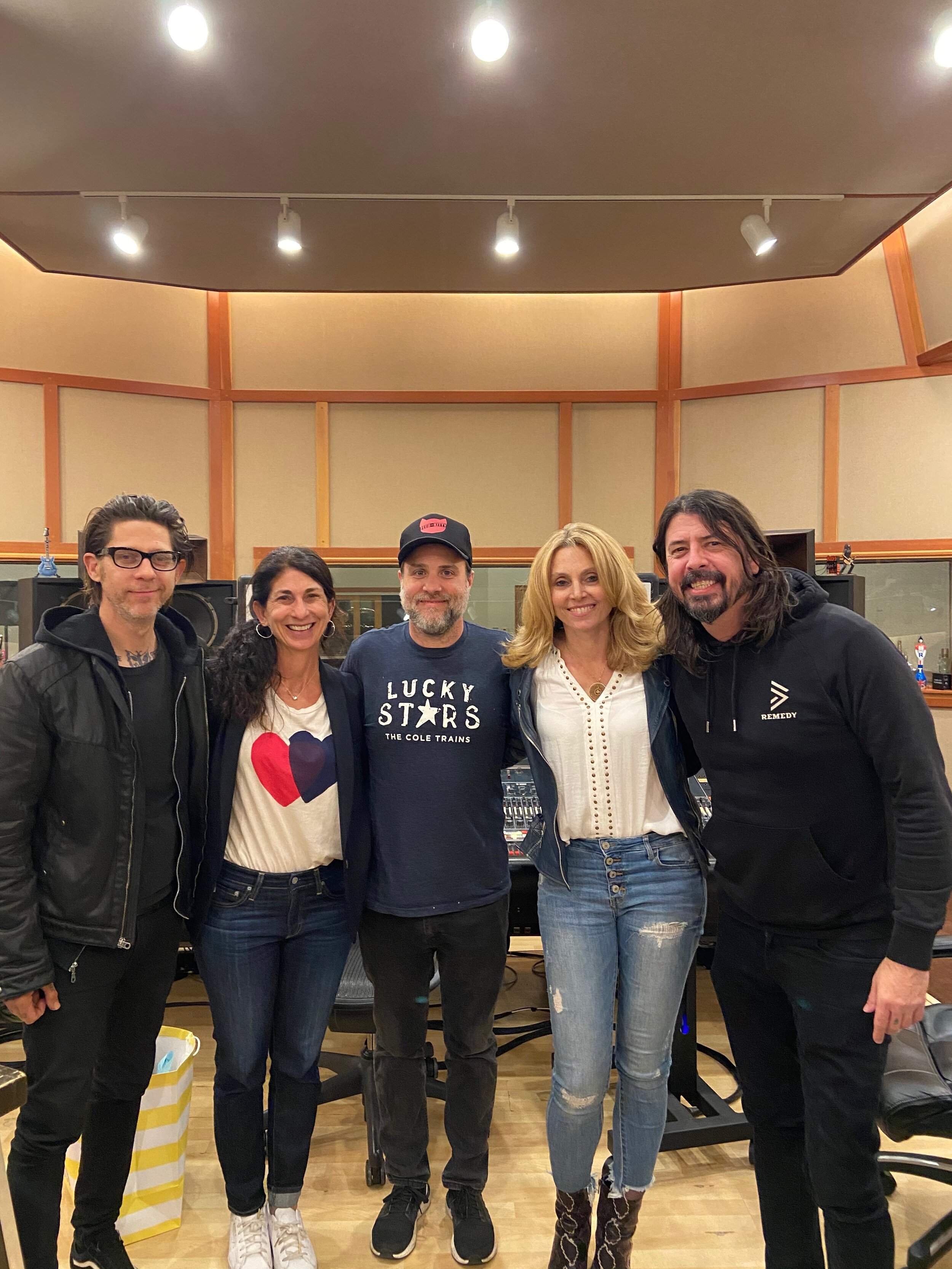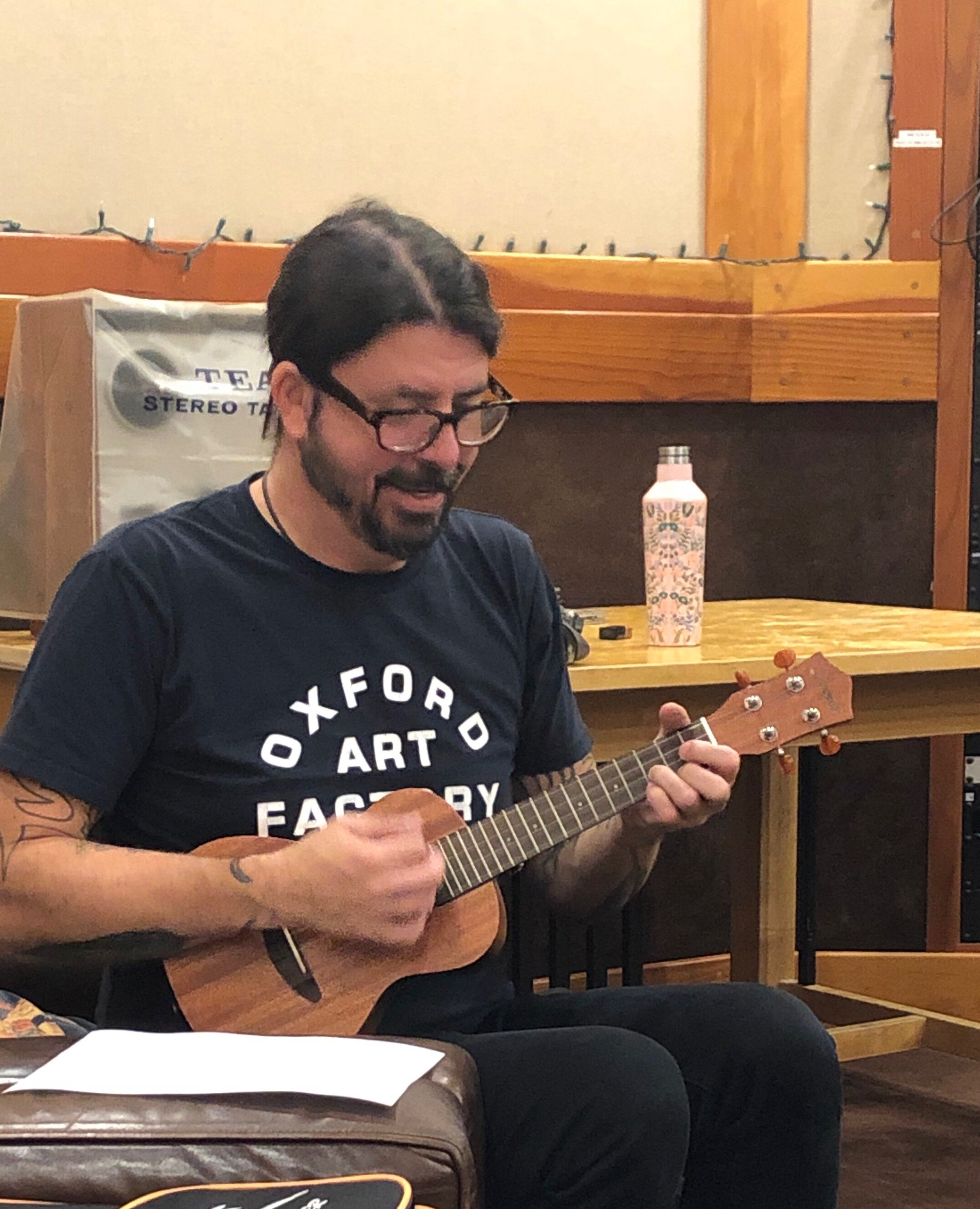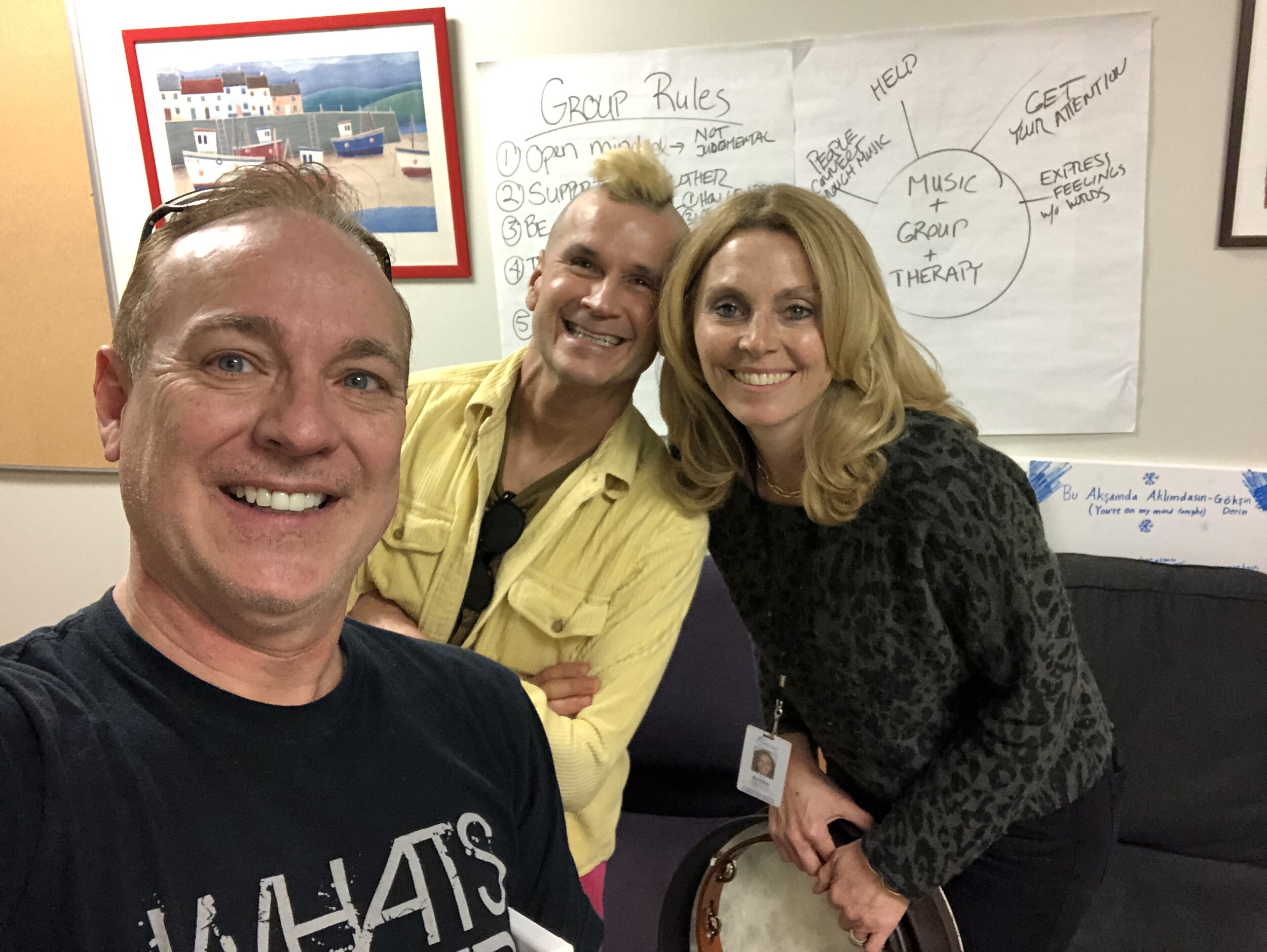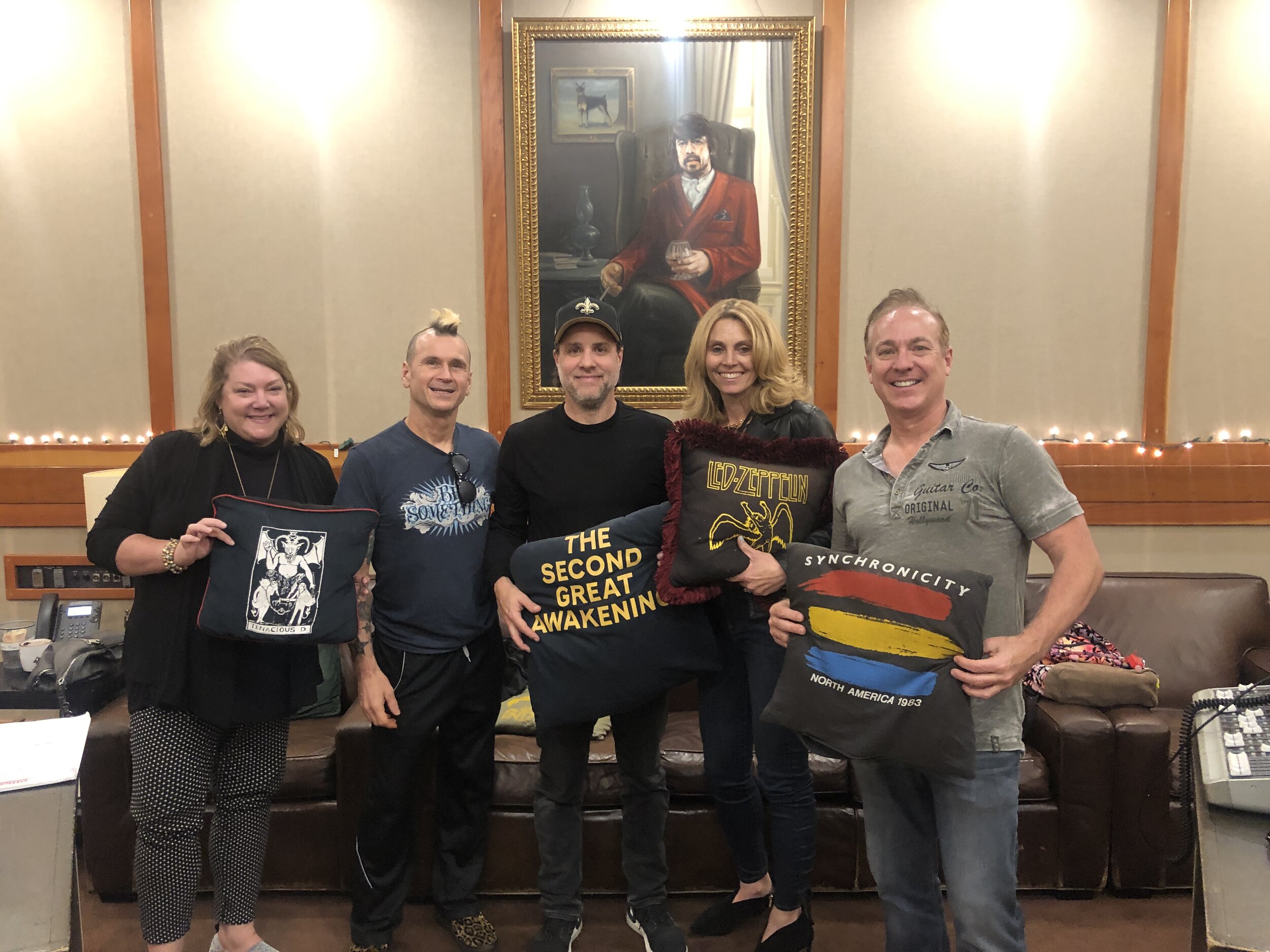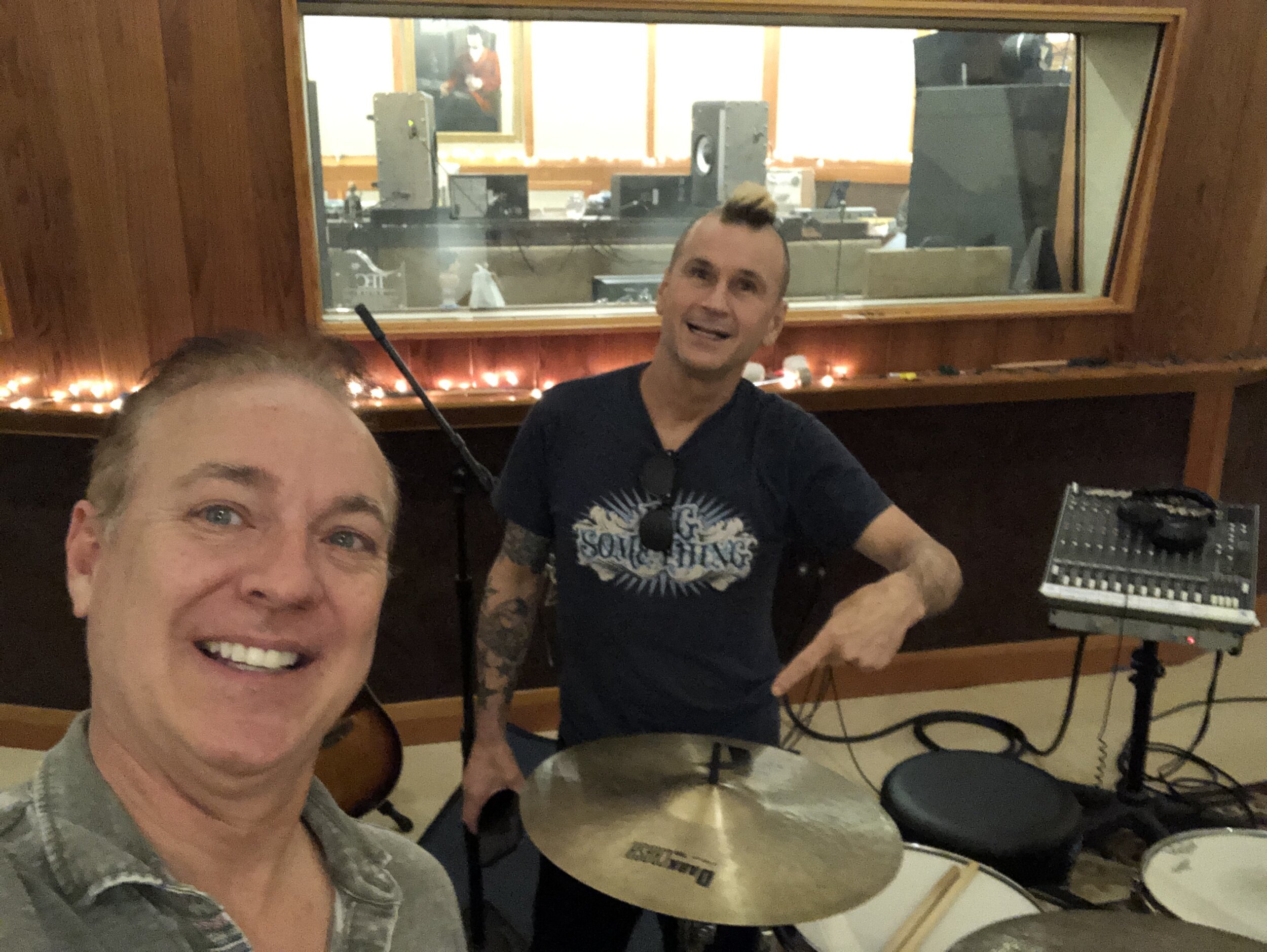The Coronavirus pandemic has put everyone in a tailspin. Feelings of social isolation and depression are at an all-time high. Despite social distance requirements, Innovative Group Psychotherapy continues bringing youth together in a unique and powerful way. According to Founder/CEO Dr. Brette Genzel-Derman, the pandemic has not stopped her Acoustic Youth group therapy program. Originally inspired by Dave Grohl’s Sonic Highways, Acoustic Youth combines therapy and musical mentorship to improve a teen’s resiliency. Initially, Dr. Genzel-Derman was skeptical about the efficacy of online group therapy. These concerns were quickly dispelled when she realized how desperate the teens were to connect about meaningful issues. Even with connection problems and awkward lags therapeutic growth was made. As one teen remarked, “without this group I would still be clicking ‘likes’ as a way of being with my friends.” Another teen indicated the group’s song writing techniques inspired personal insight that facilitate change. He stated, “I know I am going to use this for the rest of my life.” Writing painful feelings down and turning them into songs builds pride and empowers teens. Normally, this would culminate in a professional recording studio session, but Covid creativity had the group recording in a park with a jerry-rigged generator in the back of a pick-up truck. For these teens, it was not about a polished finished product. It was simply about celebrating the joy of personal growth, social connection and musical creations.
At Foo Fighter's Studio 606 - Atom Willard, Carol Gelbard, John Lousteau, Dr. Brette Genzel-Derman and Dave Grohl
A New Twist to Helping Teens: Sonic Highways inspires Acoustic Youth program
Magic happens, and when it happens in group therapy with anxious and depressed teenagers, let me tell you, it’s nothing less than what Foo Fighters Dave Grohl would say is “f***ing epic!” and he should know, because he has been there every step of the way.
It was Grohl’s HBO documentary Sonic Highways that inspired psychologist Dr. Brette Genzel-Derman to design a program using songwriting and professional recording to encourage troubled teens to express their fears and to cope with the trauma in their lives.
Just as Grohl traveled the world in Sonic Highways for inspiration as he soaked up the culture of cities and learned about people’s lives, Genzel-Derman used that concept to motivate troubled teens to use metaphors and life experience to express their feelings through songwriting. She believes that one-on-one talk therapy can be daunting to kids who have difficulty expressing themselves, especially when asked “What is bothering you?” She also believes that freedom to use creativity to put words to music can be liberating, and she was right. Acoustic Youth was born.
In fun-filled group therapy sessions, Acoustic Youth teaches teens how their brain works and how to manage negative emotions using music and songwriting. Many teens enter the group lacking confidence, and feeling socially isolated. Struggling to keep up with every day responsibilities teens often feel incompetent and lack joy in their lives. By helping them to understand the body’s chemistry, teens become enlightened and begin to understand the role they can play in making themselves feel better and in control. That’s where music comes in.
Music is a powerful coping tool that is highlighted throughout the sessions. Students listen to music, they talk about it, they play drums and they are encouraged to use metaphors to express their feelings. These metaphors ultimately get translated into the lyrics of their songs. Using metaphors allows them to safely express what previously could not be put into words.
In the sheltered environment of the group, they act as witnesses to each other‘s personal lyrical creations, which adds emotional depth between the group members. Slowly those afraid to take the next step in the process, see their peers finding the courage to engage. The mutual sharing of each other‘s pain through a musical platform is powerful, and the emotions expressed in the songs are safely held and celebrated.
Dave Grohl
Dave Grohl was the first mentor to volunteer in Dr. Genzel-Derman’s pilot program Sonic Teens, which was offered at the Child and Family Guidance Center, a non-profit community mental health center, in Los Angeles. As a mentor, Grohl became a critical part of the group therapy dynamic providing inspiration, structure and guidance. Mentors enter into the process a few weeks into therapy and are challenged with assisting the teens (regardless of any formal music training) in the development of a unique song. They support and motivate each teen from their own experiences and connections with music to make a song that resonates and encapsulates each teen’s feelings.
In a recent session, one teen shared that it was easier to sing about her abuse because, “you can say so much in just a few words... and no one but you really knows what it means.” A group member struggling with depression and motivation said, “These weekly groups have changed my life…it made me a lot more productive. Having the mentors gave me a sense of energy…it helped me to do more.” Another teen (who had previously been suicidal) stated, “This experience helped me realize I was finally healing... because I was connecting more with the hopeful part of the song.” In Acoustic Youth it’s not the finished song that is most important, rather it is the coping skills acquired, the human connections made, and the confidence gained.
Parents of these teens are impressed with Acoustic Youth too. One parent, who had a child go through the program twice, recounted the joy she felt upon hearing her daughter say, “Mom, I haven’t been this happy in a long time. I don’t want it to end.” This mom gives Acoustic Youth credit for helping her daughter have a more positive outlook on life and communicating with her more when she is feeling troubled or down. Hearing that her daughter now wants to pursue a career in therapy, in hopes that she can someday help other teens, fills her with pride.
Seeing the tremendous impact this program has on troubled teens, some of whom are suicidal, Grohl continues his mentorship in Acoustic Youth (one of three programs offered in Dr. Genzel- Derman’s company, Innovative Group Psychotherapy, Inc.). In June 2019 Grohl and Genzel- Derman were featured on the Today Show highlighting the profound impact their involvement had on the life of one of the teens.
At Innovative Group Therapy Center - No Nuts Owners Bill McFadden and Rodney Pino with Dr. Brette Genzel-Derman
In addition to Dave Grohl, mentors Bill McFadden and Rodney Pino (musicians/ bandmates, and owners of No Nuts Cymbal Sleeves), started their first session with an electrifying drum circle that transformed a room full of reticent kids into a group of laughing foot tapping, and drum beating teens. Mentor Robin Diaz’s (formerly Courtney Love, Peter murphy of Bauhaus and Live drummer) vulnerability about his past struggles fostered a safe environment such that the teens were unabashedly belting out lyrics. Minutes earlier the group had sat silent. Atom Willard’s (drummer for Against Me, formerly The Offspring’s drummer) patience and support helped a terrified and insecure female sing lyrics into the microphone for the first time. Acoustic Youth also benefits from having an amazing sound engineer that pulls it all together. John Lousteau (Foo Fighters sound engineer) is magical at transforming the song’s lyrics and beat into a recording studio quality single.
Regardless of the role-played, mentors have all been changed by this process as well. Seeing the healing powers of music first hand often rekindles the initial passion and belief which drove the mentors to be musicians and artists in the first place. Just like Dave Grohl, the mentors keep coming back excited to meet the next group of teens.
At Foo Fighter's Studio 606, No Nuts Owners Bill McFadden and Rodney Pino (pointing at the No Nuts Cymbal Sleeve)
Foo Fighter's Studio 606 - Kelly Steiner, Rodney Pino, John Lousteau, Dr. Brette Genzel-Derman, Bill McFadden
For anyone interested in more information please visit www.igpsychotherapy.com.
Dr. Genzel-Derman is the CEO and founder of Innovative Group Psychotherapy, Inc. Her main passion is working to empower teens to heal through creative expression. She received her doctorate in clinical psychology at the California School of Professional Psychology. She has been in private practice for 15 years specializing in psychological assessment and has worked as a clinical psychologist at the Child and Family Guidance Center for the past 20 years.
For more information go to www.igpsychotherapy.com. Or call 310–739–7344.

